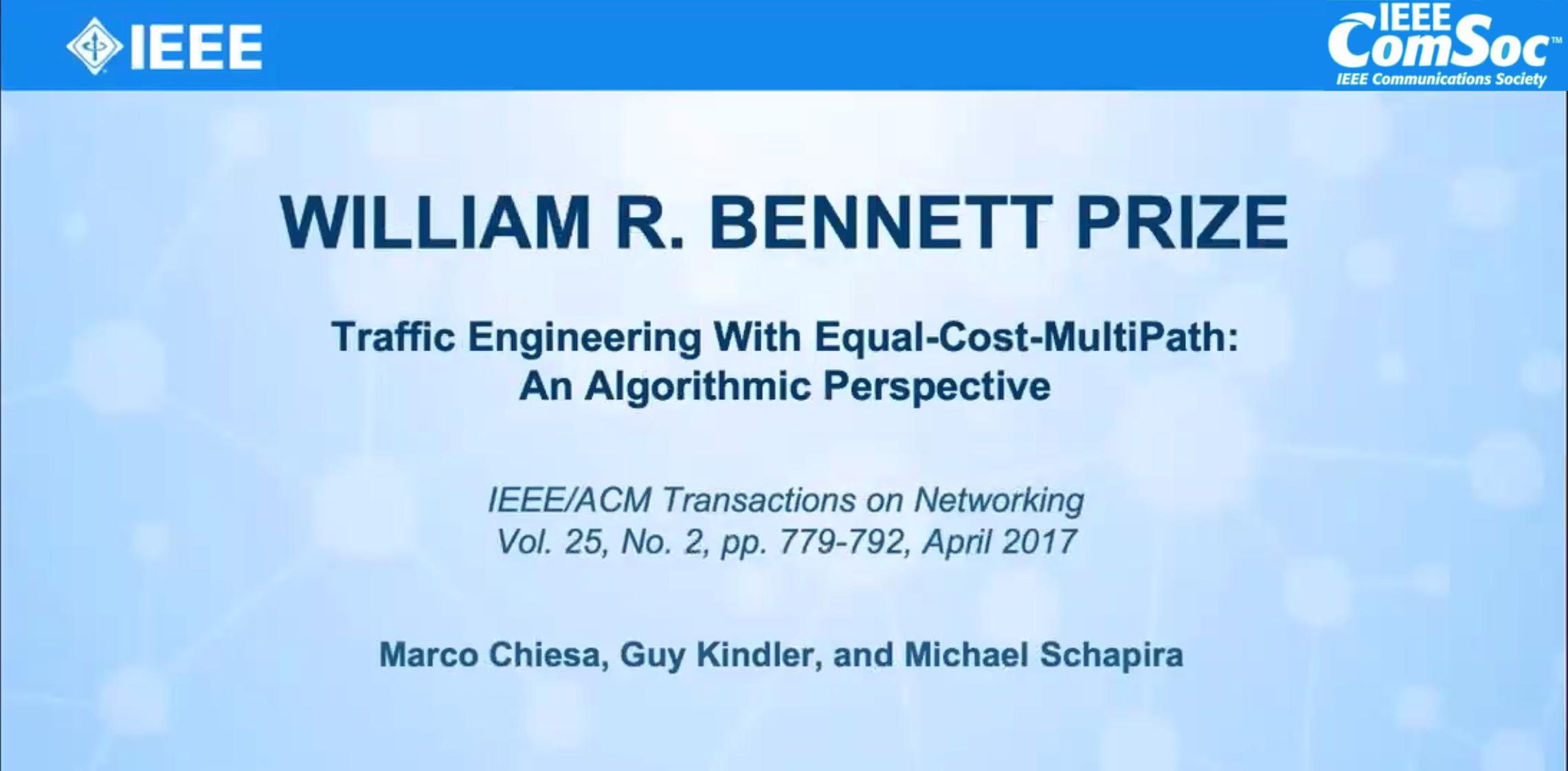Congratulations Marco Chiesa, who has received the William R. Bennett Prize

Marco Chiesa, assistant professor at COS, Division of communication systems, has received the IEEE Communication Society William R. Bennett Prize for his work on traffic optimisation in wide-area and datacentre networks. The award ceremony took place (virtually) during the annual IEEE International Conference on Communications (ICC) on June 8.
The prize is awarded to the single best publication in terms of quality, originality, utility, timeliness, and clarity of presentation of an original paper published in the proceedings of IEEE/ACM Transactions on Networking, the flagship journal in the networking area, in the last three calendar years.
How does it feel to be awarded the IEEE William R. Bennett prize?
It is an amazing feeling and a great honour! Since 1994, IEEE has awarded the prize to several researchers that are now deemed as some of the most influential researchers in the field of communication networks. I feel this award also recognises our enormous efforts in solving a long-standing complex open problem in the area of network traffic optimization. All of this would have clearly not been possible without the help of my collaborators, Guy and Michael!
What is your area of research and why is it relevant for society?
My research interests focus on computer networking and, more specifically, on making Internet communication as efficient, robust, and secure as possible. There are many reasons why conducting research in networking is fascinating.
First, networks are an indispensable component of our society. Think of the current global pandemic. Thanks to the Internet, different parts of our society continue to operate without interruptions to the largest extent possible. It is a very rewarding feeling to come up with new ideas and approaches that have a direct and immediate impact on how our society functions.
Second, network technologies operate at insanely high speeds. Working in networking gives you a unique opportunity to sit at the border between hardware and software research. Think of today's network devices that can process billions of messages every single second! In a large data centre with thousands of such devices, the network must support communication within a few microseconds, something that is only possible using specialised hardware. At the same time, the network must be as flexible as needed to adapt to the emerging business use cases, something that requires high software modularity. I always feel that we, as network researchers, are similar to jugglers: we need to find and keep a delicate balance between system performance and flexibility when designing a network. And a big difference is that, in contrast to a juggler, part of our public is constantly launching devastating attacks in an attempt to disrupt our systems, which means we always think about security requirements in our daily work.
Finally, networking research is inherently highly interdisciplinary. In one of my most cited works, we investigated how governments enforce country-wide censorship operations by exploiting the same Internet protocols that were meant to interconnect the world together. Understanding how the Internet works and how it affects our society is an intellectually rewarding journey that I try to convey to my colleagues in my seminars and to the KTH students in my courses.
Authors: Marco Chiesa, Guy Kindler, and Michael Schapira.
Contact:
